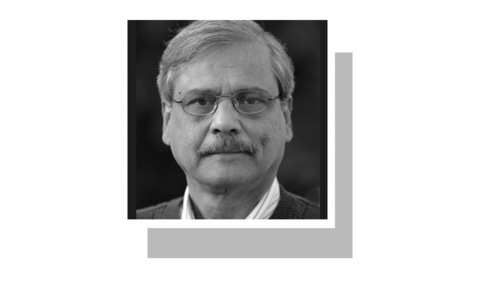KABUL: A blistering overnight attack by the Taliban on an Afghan police outpost in western Farah province killed 30 policemen, Afghan officials said on Thursday.
It was the latest in a series of brutal and near-daily Taliban assaults on the military and police forces, government and other installations throughout the country. The resurgent Taliban, who in recent years have taken over nearly half of Afghanistan, did not comment on the attack in Farah.
The attacks have been so relentless that authorities no longer regularly provide casualty figures, but unofficial estimates say that about 45 Afghan policemen or soldiers are killed or wounded on a daily basis.
According to provincial council member Dadullah Qani, the overnight onslaught on the outpost in Farah’s district of Khaki Safed began late on Wednesday and continued for more than four hours.
In Kabul, lawmaker Samiullah Samim said that the Taliban killed all 30 policemen members of both the national and local police force who were deployed at the outpost, including the district police commander, Abdul Jabhar.
Retaliatory air strikes killed 17 Taliban fighters but the insurgents still managed to get away with a large amount of weapons and ammunition, he said.
Meanwhile, fighting with the Taliban in two districts of central Ghazni province has displaced thousands of people in the past two weeks, most of them minority ethnic Hazaras, who are Shias, said Mohammad Arif Rahmani, a lawmaker from Ghazni.
Also, about 100 Afghan policemen, local pro-government militiamen and soldiers have been killed in the bitter clashes there, Rahmani said. Currently, Afghan security forces are battling insurgents in 22 of the country’s 34 provinces, he added.
Afghanistan’s protracted war has also become increasingly deadly for civilians. A United Nations report issued earlier this year said more civilians died in the first six months of 2018 than in any year since 2009, when the UN mission first began monitoring civilian casualties.
“Every day in the first six months of 2018, an average of nine civilians, including two children, were killed in the conflict in Afghanistan,” said the independent Afghanistan Analysts Network in its own report.
Security forces at outposts throughout the country routinely face shortages of weapons, ammunition and even food supplies, said military analyst Javed Kohistani, blaming government mismanagement.
More senior and experienced generals have been replaced with younger officers whose inexperience is compromising the strength of the security forces.
There are fewer and fewer recruits and in some areas, a battalion which should have 400 to 600 troops barely has 100 to 200 soldiers, he said. “Nobody is joining the army,” he said.
Afghanistan’s Defence Minister Gen Tariq Shah Bahrami was grilled by lawmakers in parliament on Wednesday about Taliban onslaughts in Wardak and Ghazni provinces where entire districts are under siege.
Bahrami acknowledged the security forces have a “problem” and said that reinforcements have been sent.
Published in Dawn, November 16th, 2018














































